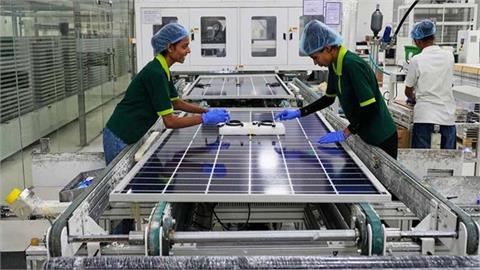Germany agreed to invest billions of euros to expand the role of green hydrogen energy to help end the country's dependence on coal as part of its €130 billion ($147 billion) stimulus package against the coronavirus pandemic, according to German media on Thursday.
In line with Germany's €130 billion ($147 billion) stimulus package against the coronavirus pandemic, the country plans to use hydrogen for about 10% of the country's electricity production.
"The time has come for hydrogen, and the technologies enabling its use,” German Economy and Energy Minister Peter Altmaier was quoted as saying in a joint statement on Wednesday.
Altmaier stressed that hydrogen is necessary to decarbonize the steel, chemical and transportation sectors.
"Hydrogen will be a key commodity for a successful energy transition. This forward-looking source of energy will make an important contribution to meeting climate targets in Germany and across the world. Germany will be playing a pioneering role in this, as we did 20 years ago when we started to promote the use of renewables,” he said.
Hydrogen in the energy sector is produced by reshaping natural gas, which releases carbon dioxide emissions.
However, green hydrogen is extracted from water by electrolysis, but it is still a very energy-intensive process.
Therefore, Germany decided to expand the role of green hydrogen production using less energy-intensive processes.
German media reported last week that the German government announced its aim of having 5 gigawatts (GW) of hydrogen production capacity by 2030, with another 5 GW a decade later.
(Anadolu Agency, June 11, 2020)



